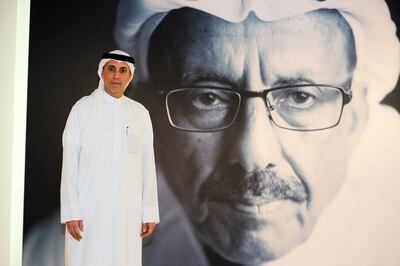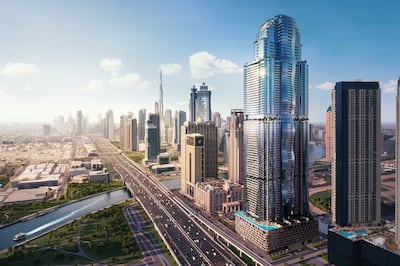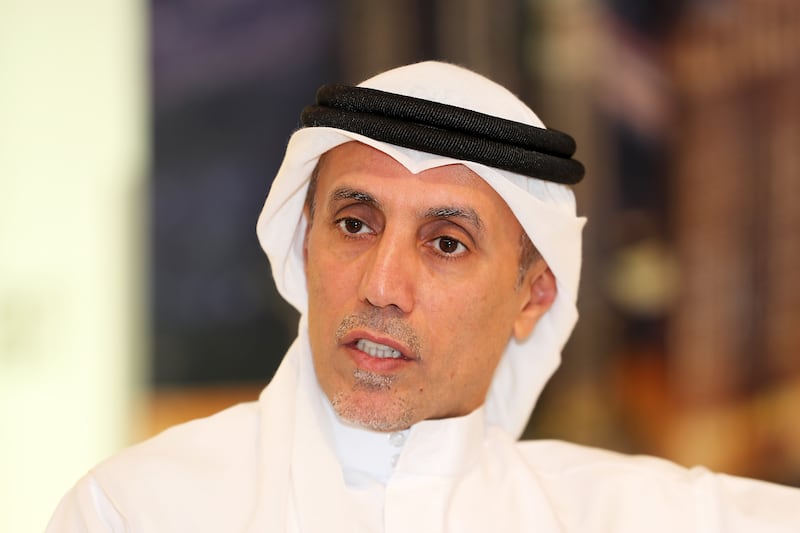Dubai conglomerate Al Habtoor Group plans to acquire commercial property in Europe this year as part of its expansion plans and expects 15 per cent to 20 per cent revenue growth across its businesses in 2023.
The family owned business, with interests in the property, hospitality, automotive, insurance, education and publishing sectors, is looking at countries near Hungary, including Slovakia, the Czech Republic and Romania to buy property, its vice chairman and chief executive Mohammed Al Habtoor told The National in an interview.
The company currently owns an office complex and two hotels in the Hungarian capital, Budapest. It also has hotels in Austria, the UK, Lebanon and the US.
Mr Al Habtoor did not disclose how much the company plans to spend in buying property but he said they were “looking for the right thing which has a good yield”.
The company aims to fund the new deals through its own resources and has no plans to borrow from banks or raise cash through bonds or sukuk.
The prices are “good now … there is an opportunity”, he said.
Europe faces economic headwinds with higher inflation and a tightening of monetary policy by the European Central Bank.
The euro area, which includes 20 EU countries that use the euro as their primary currency, is forecast to grow by 0.8 per cent in 2023, following a 3.5 per cent expansion in 2022, according to the International Monetary Fund.
The company aims to double or triple its portfolio in the next five years.
“With our investment in Europe, here or in the region, we have the appetite and capability to expand more.
“All the sectors, even in the schools, we are looking to expand in different areas, to go to different countries,” Mr Al Habtoor said.
The company intends to expand in the UAE and plans to unveil a new real estate project in Dubai by the end of the year following the launch of a Dh3.7 billion residential tower in Al Habtoor City, on Sheikh Zayed Road, earlier this year.

It has been “very busy” on the sales side at the new property, which it says is one of the largest residential towers in the world with more than 1,700 units.
“The general demand in Dubai for real estate is huge. There is still an appetite but [it] depends on the location, as well as the amenities you provide and the surroundings,” Mr Al Habtoor said.
Dubai’s property sector performance reached a total transaction value of Dh157 billion in the first quarter of 2023, an 80 per cent annual increase, the Dubai Media Office said in April.
The number of real estate transactions during the period grew 49 per cent to 38,715.
High-net-worth individuals (HNWIs) from around the world plan to spend $2.5 billion on Dubai property this year, according to global property consultancy Knight Frank.
Government initiatives such as residency permits for retirees and remote workers, and the expansion of the 10-year golden visa programme, as well as the economic boost from Expo 2020 Dubai and higher oil prices, have buttressed the UAE’s property sector over the past two years.
Dubai will continue to attract new buyers because property is less costly to buy in the emirate, compared with big cities such as New York or London, and offers a good lifestyle for families and individuals to live, he said.
“The property sector is undervalued,” Mr Al Habtoor said.

It is also one of the safest places in the world, with an attractive business environment and policies for businesses to thrive and expand their operations, he said.
“[Doing] business is easy and the government rules are very clear. There are no surprises and hidden things that you get surprised in the future. That's why people have trust.”
Most banks and financial institutions have set up offices in the emirate to cover the Mena region, as well as the Indian subcontinent, Mr Al Habtoor said.
Dubai was the world's top destination for greenfield foreign direct investment projects in 2022 for a second consecutive year, cementing its position as a worldwide FDI centre despite global economic headwinds, a report found.
The emirate, the tourism and commercial centre of the Middle East, achieved 89.5 per cent annual growth in FDI projects announced last year, the Dubai Media Office said in May, citing data from the 2022 Financial Times fDi Markets report on Sunday.
The company expects revenue growth of 15 per cent to 20 per cent revenue across its businesses in 2023, compared with last year. This does not include sales from Al Habtoor Tower.
The hospitality and motoring divisions contribute the lion's share of revenue, at 65 per cent, followed by real estate, education and insurance.
The company, founded in 1970, owns seven hotels in Dubai and is the distributor of global vehicle brands such as Mitsubishi, Chery and JAC Motors. It also has two schools in Dubai.
On the initial public offering plans of the company, Mr Al Habtoor said they might have something to announce by the summer of next year.
“By one year from now, maybe next summer, we might have something ready to be announced, but the chairman will take a final decision.”







